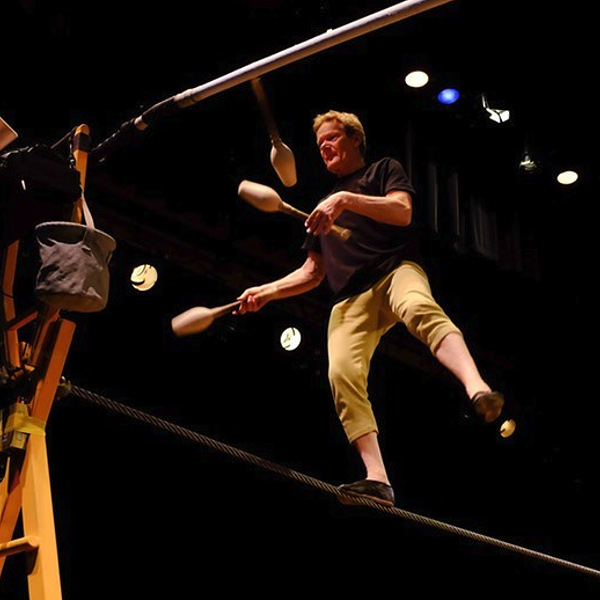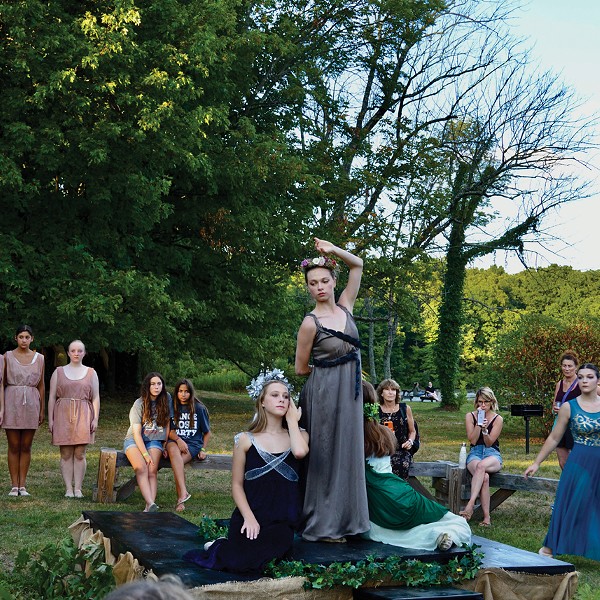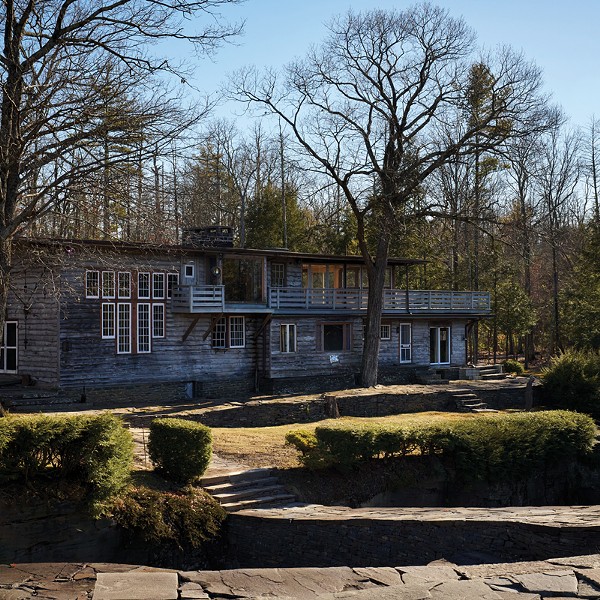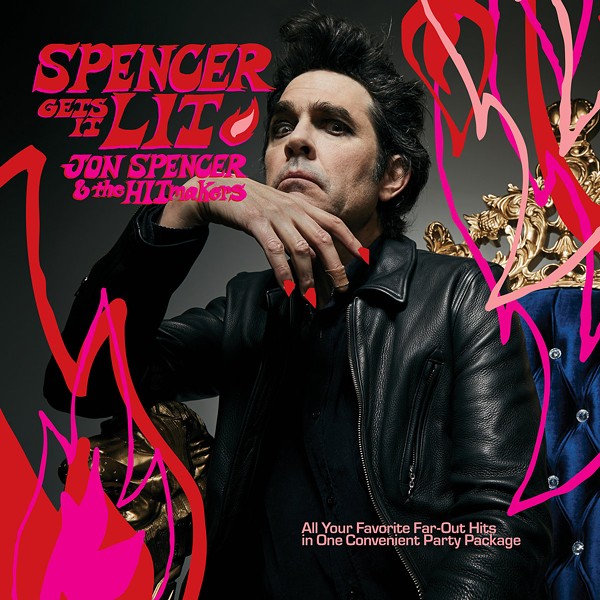Some people are just drawn to riding, compelled to spend time around horses, says Nancy Rosen. "There seems to be people who are just born with the drive to ride, parents are mystified by it," Rosen says.
Rosen is one of those people and she and other horse enthusiasts find plenty to love in the Hudson Valley, an area that—as any drive down a side road will tell you—is brimming with equestrian culture. Orange County alone is home to approximately 20,00 horses and 10,000 horse owners, and has more than 100 commercial horse farm operations, as well as more than 40 indoor riding arenas. But the numbers don't tell the whole story. There are also world-class riding competitions, popular horse-related events, and people like Rosen, those whose passion and love of horses form part of the fabric of the area.
Rosen is the owner and founder of Frog Hollow Farm, a horse farm in Esopus with eight miles worth of groomed, wooded trails. The farm offers dressage lessons, a traditional style of riding and competition where the horse's natural gaits and movements are emphasized over artificial tricks. Rosen has also formed Horses for A Change, charity organization that is currently filing for nonprofit status. With this organization Rosen hopes to make riding more accessible to people of diverse ethnic and economic backgrounds. "My particular mission is to democratize the sport," she says.
The Hudson Valley is brimming with riding destinations where riders of all skill levels can saddle up. Juckas Stables, in Bullville is open all year and offers lessons and hourly horse rentals. Guests enjoy 117 acres of trails that wind through the countryside. Juckas Stables also offers an overnight horseback camping option. In New Windsor, Ivy Rock Farm has two riding centers located within a mile of one another, Schunnemunk Shadow Stables and Hollybush Classical Dressage Center. The locations are mirror operations and offer riding instruction and training daily, as well as boarding facilities. The horses are fed locally grown organic hay and caretakers of the facility live on premise.
Beyond horse farms, the area hosts several major riding events including the Millbrook Horse Trials. The event is in Millbrook, one of the Hudson Valley's riding meccas, and attracts 4,500 spectators each summer and boasts past competitors such as Phillip Dutton, a two-time Olympic Gold medal winner, and Leslie Law, an Olympic gold medal winner from the United Kingdom.
Another major riding event is HITS-on-the-Hudson in Saugerties, which attracts a wide variety of competitors and spectators. HITS-on-the-Hudson events have taken place all summer and will culminate September 3 to 7 at the HITS championship. The event will come to a close on Sunday, September 7, with a performance by the Charlie Daniels Band.
But the culture surrounding horses in the Hudson Valley is about more than fun and competition it's also about working with horses to help and to heal people. Rhinebeck is home to the Southlands Foundation, a nonprofit located on Route 9 on close to 200 acres overlooking the Hudson. Its mission is to provide an understanding of the environment and its creatures through outdoor activities, particularly through the instruction of horsemanship and other horse-related pursuits. While doing that, the organization has also helped to spur Rhinebeck's robust equestrian culture since the late 1930s.
In Warwick the Winslow Therapeutic Center is a nonprofit organization with the motto "healing with horses." The facility offers therapeutic horseback riding procedures for children and adults with physical mental, or social disabilities, and those who wish to learn about horses and riding in a therapeutic environment.
Sarah McQuade runs Legga, Inc., an equine assisted therapy company that operates with horses at private farms in New Paltz and Beaverkill Farm in Saugerties. McQuade, a licensed clinical social worker, explains that this form of therapy has been around for some time. "Modern use began just after World War I where they found it beneficial for some returning soldiers to ride and interact with horses," she says. The benefits of the therapy can be emotional and behavioral says McQuade. "In equine-assisted psychotherapy sessions the horse often provides the human participant with a mirror of the world they help to create. This engaging process allows someone to see the problems resulting in real solutions that provide a faster, more powerful change."
For her sessions McQuade usually does unmounted work so the demeanor of the horse assisting in the session is more important than its level of training. "It takes a special horse to be a therapy partner," McQuade says. "A horse with good 'ground manners,'—doesn't kick or bite, is safe to work around— is essential. Horses are naturally good at reading humans' body language and nonverbal cues. A 'therapist horse' has that extra sensitivity but is very grounded."
As a horse lover herself, McQuade says its great to live and work in the Hudson Valley. "Horse culture in the Hudson Valley is very diverse, which opens the 'horse world' up to more people," she says. "It is great to be in an area that has so many options at our finger tips."
RESOURCES
Frog Hollow Farm Dressageatfroghollowfarm
HITS-on-the-Hudson Hitsshows.com
Ivy Rock Farm Centerlinestudios.com/ivyrockfarm
Juckas Stables Juckasstables.com
Legga, Inc Leggainc.com
Millbrook Horse Trials Millbrookhorsetrials.org
Winslow Therapeutic Center Winslow.org

















